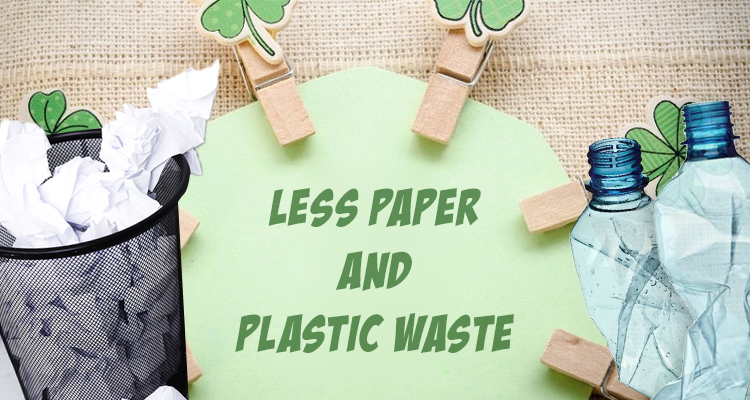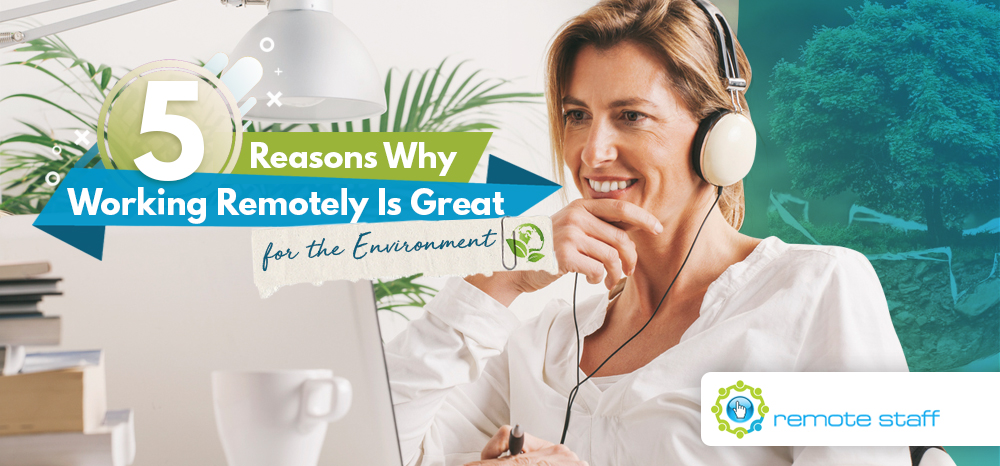The other day, we talked about a handful of Australia’s most environmentally friendly start-ups. Today, let’s talk about how remote working benefits the environment.
Most of us have been working from home for over a year now. While it’s not without its challenges, I honestly can’t imagine going back to the alternative, even after the pandemic. I’m sure lots of people feel the same way.
Fortunately, a work-from-home (WFH) set-up isn’t just beneficial for us introverts. It also happens to be very good for Mother Earth too. Here’s why:
1.) No Commutes = Fewer Emissions.

This is perhaps the most obvious benefit. Working from home removes the need for commuting or driving to work. Therefore, you cut down on emissions from cars, buses, and other forms of transportation.
Need more proof? Look up at the sky. I’ll bet it’s a lot clearer now compared to last year, what with far less vehicles on the road.
Furthermore, remote working helps individuals dramatically reduce their carbon footprint. People who used to fly a lot for work or business now find themselves doing Zoom or Skype conferences instead.
2.) Better Air Quality.

This is a direct consequence of item no. 1. According to Breathe London’s data, the WFH movement reduced emissions from morning and evening commutes by 25% and 34%, respectively.
In addition, findings revealed that working from home could cut 11 billion car miles per year. This cuts greenhouse gas emissions by 3.3 million tons, and that’s in London alone.
If the trend continues, we’re looking at better air quality not just in the suburbs, but in larger cities too for the foreseeable future.
3.) Reduced Power Consumption.

It takes twice as much energy (at least) to run a brick-and-mortar office than a residence. A big part of that is due to constantly regulating the temperature to keep several people warm or cool throughout the day. Then there’s the fact that offices tend to have multiple rooms lit at any given time.
At home, you decide your temperature preferences so there’s less need to regulate it. You can also restrict the use of power by working in just one room or area the whole time.
As with carbon emissions, global power consumption has drastically gone down in the past year due to more people WFH.
4.) Less Paper and Plastic Waste.

Thanks to digitized documents and cloud usage, going paperless has never been easier. Considering that Americans alone use over 85 million tons of paper annually, this is good news for the environment.
The best part is that less paper waste can lead to fewer emissions too. Less paper usage means we can save more trees. Just one tree saved can remove up to 14.7 pounds of carbon dioxide from the air. Over the course of a year, this can cut greenhouse emissions significantly.
As for plastic waste, WFH means you can use your own plates and cutlery. You can cook food and brew coffee in your own kitchen. Thus, you cut down on the usage of plastic lids and takeaway containers.
5.) More Sustainable Lifestyles All Around.

If there’s one thing the past year has taught us, it’s that remote working isn’t just possible. It’s actually sustainable for the long term, and we can be all the better for it.
From cutting down on unnecessary commutes and road trips to reducing the need for fast fashion just to show up to work in different outfits each day, the silver lining in all this is that we’ve been able to focus on what is truly important. And clearly, it’s been good for the Earth too.
On a final note, working from home isn’t just good for the environment. It’s good for your bottomline too. Apart from the good will your company can harvest if it successfully cultivates an environmentally-friendly image, the cost savings are undeniable.
To pull it off, you need an effective remote team behind you. We can help you there. Remote Staff has had more than ten years of experience recruiting and onboarding top Filipino remote talent for various AU entrepreneurs. With our help, you can help preserve the Earth for generations to come AND scale your business sustainably.
Give us a call or click here to schedule a callback and let’s get started.









